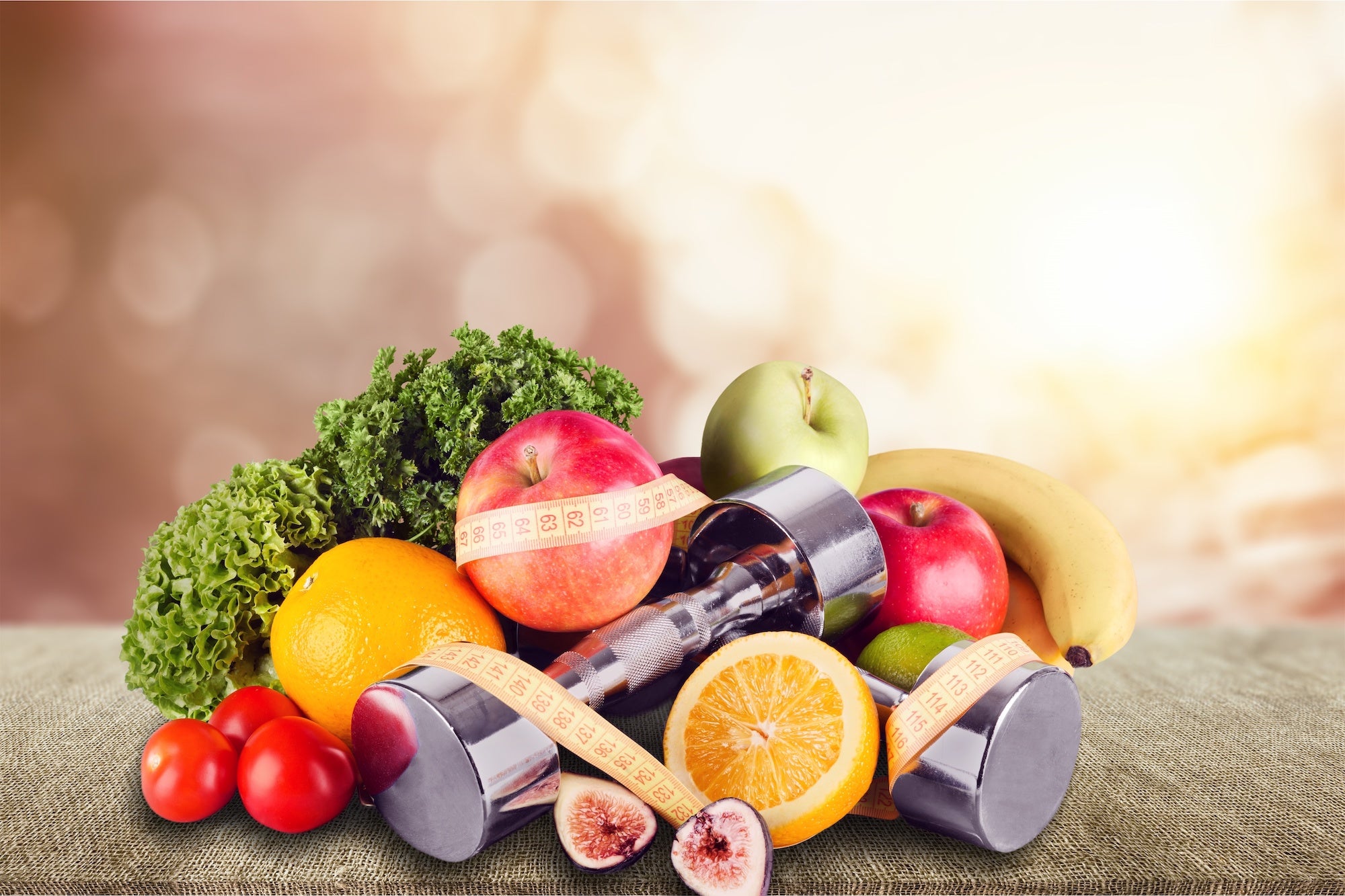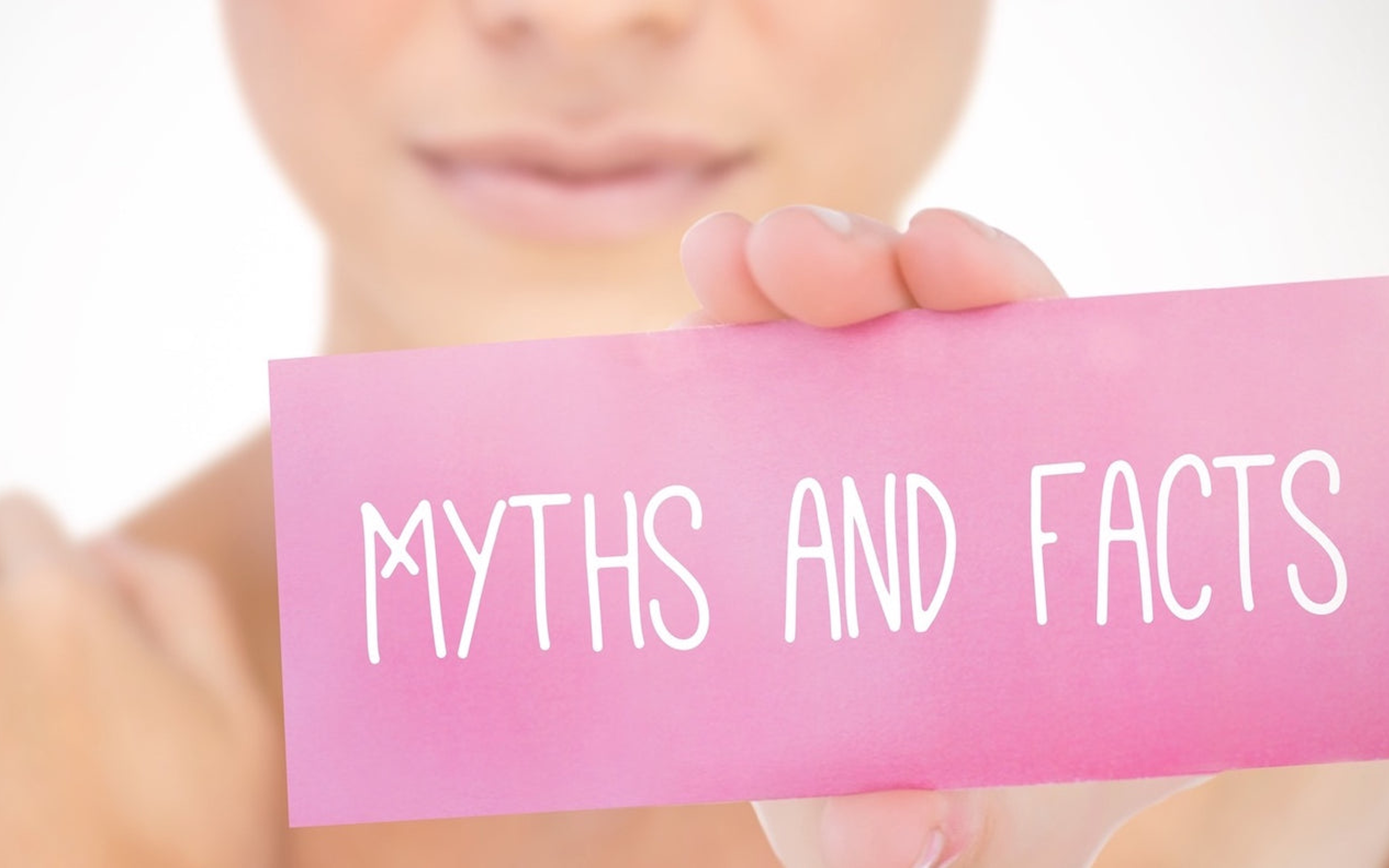
Acne and Your Diet: 12 Dos and Don’ts for Clear Skin
If you’ve been researching acne for more than a minute, it will come as no surprise that your diet plays a role in the health of your skin. There is a lot of information floating around the internet on the subject. Unfortunately, there’s a lot of misinformation, too.
Like, greasy foods do not equal a greasy face. I repeat: greasy foods do not equal a greasy face.
Honestly, I thought I knew everything about my miserable skin until I started researching the real connections between diet and acne. And I’m betting you’re in the same boat.
With so many myths and misconceptions clouding your efforts to become your best self, it’s time to break it down with some real talk. Here are 12 Dos and Don’ts to get your clear skin journey back on track!
1. DO Eat Less Refined Sugars and Empty Carbs
Here’s the thing about sugar: it’s delicious. It’s also addictive. That’s why big food companies are sneaking it into everything. (Sugar-added peanut butter? Yeah, okay. Sugar-added beef jerky? So wrong...but so right.)
Here’s the other thing about sugar: It’s super bad for us and our skin. Womp womp.
Refined sugars are dangerous to our complexion due to the quick-fast way they are absorbed into our bloodstream. Because these sugars aren’t accompanied by a sufficient amount of fiber, our body absorbs them rapidly, causing our insulin levels to spike.
Insulin, in turn, boosts our production of sebum and spurs our skin cell growth, both of which can contribute to acne breakouts.
It gets even worse if you develop insulin resistance thanks to that high-sugar diet. Insulin resistance means that sugar triggers an even greater insulin response, flooding your system and contributing to increasingly severe acne. Disaster!
Some dietary sugar bombs are easy to spot, like sodas, ice cream, and candy. But some are less obvious. Next time you’re at the store, take a minute to check the sugar content on your favorite fruit juice, pasta sauce, canned soup, or salad dressing. It’s going to be a nasty shock.

Empty carbohydrates — which you may see referred to as simple carbs, or refined carbs — follow much the same nutritional path. Our body quickly breaks them down into sugar, absorbs them, and experiences an insulin spike.
These bad carbs include foods like french fries, potato chips, and enriched bread (of both the white AND wheat varieties). Pro tip: When trying to select a healthy wheat bread option, check the first ingredient. Does it contain the word “enriched?” Pass! Look for breads that specifically list “whole wheat flour” as their primary ingredient.
Ultimately, the easiest way to avoid refined sugar and limit your empty carbs is by focusing on whole foods, like unprocessed vegetables and proteins. Our ancestors survived on whole foods for thousands of years, because they are more balanced and nutritionally complex.
Not to say that a Twinkie isn’t nutritionally complex, but...actually, that’s exactly what I’m saying.
2. DON’T Cut Out Good Carbs In the Process
Of course, you don’t want to go overboard cutting carbs out of your life. It’s like dating. Just because your ex turned out to be vapid and malicious (hey, empty carbs) doesn’t mean that you should swear off all dating forever. There are still decent singles out there! Or, in this case, decent carbs.
...And then I got distracted, wondering if produce subscription boxes are like the Match.com of the grocery world.
The point is, that good carbs do exist, and they’re called complex carbohydrates. Unlike those nasty bad carbs, complex carbohydrates contain a balance of sugar and fiber, allowing your body to slowly absorb the sugar for sustained periods of energy.
And because there’s no big jump in insulin? Your skin isn’t going to freak out as badly with the overproduction of oil and skin cells.
You could technically go on a hardcore no-carb diet, but it’s not the greatest idea. Cutting out good carbs would cut out many valuable, nutrient-dense foods like fruits, vegetables, whole grains, nuts, and legumes.
That’s...a lot of food. What would you even eat on a restrictive diet like that? I think I’ll stick with my good carbs, thanks!
3. DO Eat Foods With Skin-Clearing Nutrients
Remember when I said that choosing whole foods is the best way to avoid added sugars and bad carbs? Bonus time, because whole foods are also fantastic for another thing: pumping up your diet with a spectrum of skin-nourishing vitamins and minerals.
For example, eating a selection of fish will improve your intake of anti-inflammatory omega-3 fats. Or covering a rainbow of fruits and veggies will reward you with nutrients like the impressive antioxidants in zinc, selenium, and vitamins A, C, and E.
If you need some food inspiration, check out our list of 99 Clear Skin Foods. It has lots of tasty ingredient recommendations, plus all the info on WHY they’re going to take your skin to the next level.
4. DON’T Rely Solely on Vitamin Supplements
If you’re consistently eating a whole-food diet, you don’t need any supplements. But sometimes life gets busy, and the veggies end up languishing in your crisper drawer while you inhale a drive-thru meal or wearily order all the Mexican food.
At times like these, it may be tempting to abandon your healthy eating efforts and use supplements as a shortcut. Or maybe there are nutritional gaps in your diet that you consistently can’t hit. No worries! Supplements can be a good option in these scenarios. Heck, we’ve even identified the best supplements for acne, if that’s your jam.
It’s fine to support your diet with a supplement here and there, as long as you don’t try to permanently replace whole foods with pills. A Big Mac and four vitamin supplements still aren’t a balanced diet.
The fact is, our body absorbs nutrients better from food. Those whole food nutrients are also more potent because they come supported by a network of other micronutrients that aren’t typically included in supplements.
Vitamin supplements also don’t pack the same antioxidants and essential fibers that are found in whole foods. And girl, you know we want those skin-defending antioxidants. Nobody’s got time to be playing around with free radicals and oxidative stress!
Long story short? If you abandon healthy food for supplements, those vitamins supporting your skin health are going to be weaker and harder for your body to use.
5. DO Try Nut Milk Instead of Dairy or Soy
Yes, nut milks are kind of trendy. No, that’s not why I’m recommending them. You should try switching your venti iced vanilla latte to almond milk for your skin, not for the ‘Gram.

Dairy, specifically the dairy in milk and cheese, can worsen acne-prone skin. Apart from increasing insulin levels, which we already know is a problem, dairy contains amino acids that can lead to increased production of IGF-1, another potential acne trigger.
No big surprise, as IGF-1 is a hormone produced en masse during puberty, aka acne central.
For those dodging the dairy bullet, soy milk is a common substitution. However, there is some evidence suggesting that soy milk may also trigger acne hormones. This is still under investigation, but why take the chance when there are other options available?
You may occasionally encounter nut milk skeptics who think that its omega-6 fats will worsen your acne inflammation. But there is already research debunking that theory. If you’re concerned, just make sure that you aren’t skimping on those anti-inflammatory omega-3s, which will balance out any ill effects!
6. DON’T Forget to Drink Water, Too!
With all the alluring drink options on the market, it can be easy to forget about good old water. But hydration is still key to a clear complexion!
Water helps naturally flush your body of toxins and may lower your risk of high blood sugar, helping keep those insulin spikes at bay.
Dehydration, on the other hand, can impact your body’s insulin efficiency. It then overproduces insulin, which we know can spiral our oil and skin cell production out of control.
It may seem like a no-brainer to just replace other drinks with water. After all, we’ve already called out sugary drinks like sodas, and coffee has its laundry list of problems. But it is also important to consider the quality of the water you’re drinking.
Some public water supplies add chemicals like chlorine to kill off harmful bacteria. That’s all well and good, except that it can also kill the good bacteria in our digestive system. Experts recommend using a water filter to remove these chemicals before drinking.
Struggle to drink water because it tastes like nothing? Fancy it up with some cucumber, mint, or sliced fruit!
Speaking of all those good digestive bacteria, did you know that your gut health can affect the clarity of your skin? No kidding! It’s all about that gut-brain-skin axis. Our body is made up of interconnected systems and organs, which rely on each other in complicated and surprising ways.
For example, the healthy bacteria in our gut are linked to the efficiency of our insulin use and can have a significant impact on the severity of acne breakouts.
Meanwhile, a healthy gut can help our body reduce and regulate inflammation, making those acne flare-ups milder and faster to heal.
So, what does this have to do with diet? Our diet directly impacts the bacteria in our gut — sometimes for the better, and sometimes not so much.
If you’re eating a diet low in fiber and high in fat, it can disrupt your digestive balance and cause problems with your metabolism and inflammatory skin conditions.
The most straightforward way to maintain your digestive health is by consuming probiotics and prebiotic fiber. Probiotics are available in foods like yogurt, pickles, kombucha, and miso. Prebiotic fiber appears in ingredients such as asparagus, oats, and bananas.
This power combo will help your gut’s healthy bacteria flourish, and keep that gut-brain-skin axis balanced!
8. DON’T Bother With Detox Teas
Admit it. Some of you read “gut health” and immediately thought, “I have tea for that!”
*guiltily raises hand*
Well, don’t put all your eggs in that basket. It turns out that detox teas are A) not well-regulated and B) not scientifically proven to have any significant health benefits.
Our body is already built to flush toxins naturally, without help from special herbs or purges. There have been very few studies to show whether detox teas have any benefits to add, and those few studies were fundamentally flawed.
As for the inadequate regulations, this lack of oversight leads to several issues. Detox products are often tagged with misleading marketing claims, and bragging benefits that are unproven or straight-up false.
Some products also suffer from harmful contaminants or can have negative interactions with other supplements and medications.
Now, don’t get me wrong — you can still drink that skinny girl detox tea in the back of your cupboard if you’re confident that it’s from a safe and reputable source. I’ll probably still drink mine.
Just remember that detox teas are not the end-all-be-all of healthy digestion! You’ll still need probiotics and prebiotic fiber to keep your gut happy and your skin glowing.
9. DO Track Acne Triggers With a Food Diary
Here’s a tip that will be popular with my fellow list-makers. If you think that food triggers are worsening your acne, try keeping a food diary. Write down everything you eat and drink, from breakfast to your midnight snack.
Keep the diary faithfully for at least a few weeks, also noting any bad breakouts. Once you have enough data, you can look back at the things you’ve eaten before acne flare-ups and identify patterns.
Chances are, you might notice a few of the diet villains we’ve already discussed! (Looking at you, sugar and dairy.)
For extra insight, take your diary to a consultation with a doctor or dermatologist. For extra fun, cover it in doodles and stickers, a la your 4th-grade history notes.
10. DON’T Stress Eat Over Your Latest Breakout
I know that acne is awful and embarrassing — believe, me, I KNOW — but stress eating is not the answer. It's just a counterproductive distraction!
Anyway, stressing out about your skin won’t help anything. It will only derail your self-confidence, self-esteem, and mental health, making you forget how awesome you are.
Adding insult to injury, stress itself can make your breakouts worse. Stress triggers hormones such as cortisol and CRH, which can increase your oil production, spur skin cell growth, and even activate inflammation. It’s like an acne trifecta!
To avoid this grisly fate, try some stress-lowering techniques like bubble baths, meditation, or breathing exercises.
And most importantly, remember that you are not defined by your skin! Struggling with acne doesn’t make you any less kind, talented, or intelligent. You have value beyond your complexion!
11. DO Include Diet In Your Clear Skin Regimen
By now, I’ve hopefully illustrated how diet can play a role in the development of breakouts and your overall skin health. Now you just need to leverage that information!
It doesn’t have to be a dramatic transformation from day one. Start with small changes to your regular eating habits — eating more vegetables and less processed foods. Gradually eliminating sources of excess sugar and dairy. Monitoring your water intake. Introducing foods with probiotics for gut health.
Don’t get discouraged if it takes some time to see results. The American Academy of Dermatology reports that it can take up to 12 weeks for noticeable changes to appear. Then, little by little, you may see improvements in skin clarity and tone!
12. DON’T Try to Clear Your Skin With Diet Alone
All that said (and I’ve said a lot), diet isn’t the only factor in finally achieving acne-free skin. Just ask our founder, Camille. She struggled through years of strict dieting and still couldn’t clear the final hurdle to a flawless complexion.
What did finally work for her? Combining her new healthy eating habits with clean, all-natural skincare products bursting with nutrient-rich botanicals. It’s a holistic approach that tackles acne from inside and out!
Maybe you’re just getting started on your skincare journey, or have been hitting nothing but dead-ends for years. Either way, we suggest pairing your dietary changes with our best-selling Clear Skin Kit. With steps to exfoliate, detoxify, balance, and clarify your skin, this kit has everything you need to start seeing real, lasting results in the fight against breakouts.
Don’t believe me? That’s okay, I know you’ve been burned before. But you don’t have to take my word for it. Check out the incredible testimonials and before/after shots here and on Instagram! These results speak for themselves!
What to Do Next? Try Averr Aglow’s Clear Skin Kit
Tired of feeling lost and confused about what you should do to get clear, smooth skin? Order the Clear Skin Kit.
The Clear Skin Kit contains products specially crafted with the perfect blend of natural ingredients that help soothe and calm red, irritated skin while also clearing up breakouts. If you struggle with sensitive acne/breakout-prone skin, hormonal acne, cystic acne, or rosacea, then you’ll be happy you found this complete routine.
Please understand, that results may vary, we’re not selling you a miracle product and would never try to position or state that you will get a true result in only a few days. In our clinical trials, most users found the most results at the 30-day and then the 56-day mark by sticking with our routine.
What is Averr Aglow®?
Averr means Truth. We have pioneered a revolutionary no-rinse cleansing routine specifically tailored to address problematic skin issues.
Hi, I’m Camille, founder of Averr Aglow, and I help adult women who are battling breakouts and acne get clear skin results like they have never seen before, even if nothing has worked for them in the past.
After battling breakouts for over 16 years, trying every skincare product under the sun, and visiting countless professionals like dermatologists, nutritionists, and hormonal doctors, I finally learned why nothing seemed to work on clearing up my skin, what truly causes breakouts and acne, and EXACTLY what to do to get clear skin results – and I want to help you do the same.
Let me help you! Read my full testimonial here.






